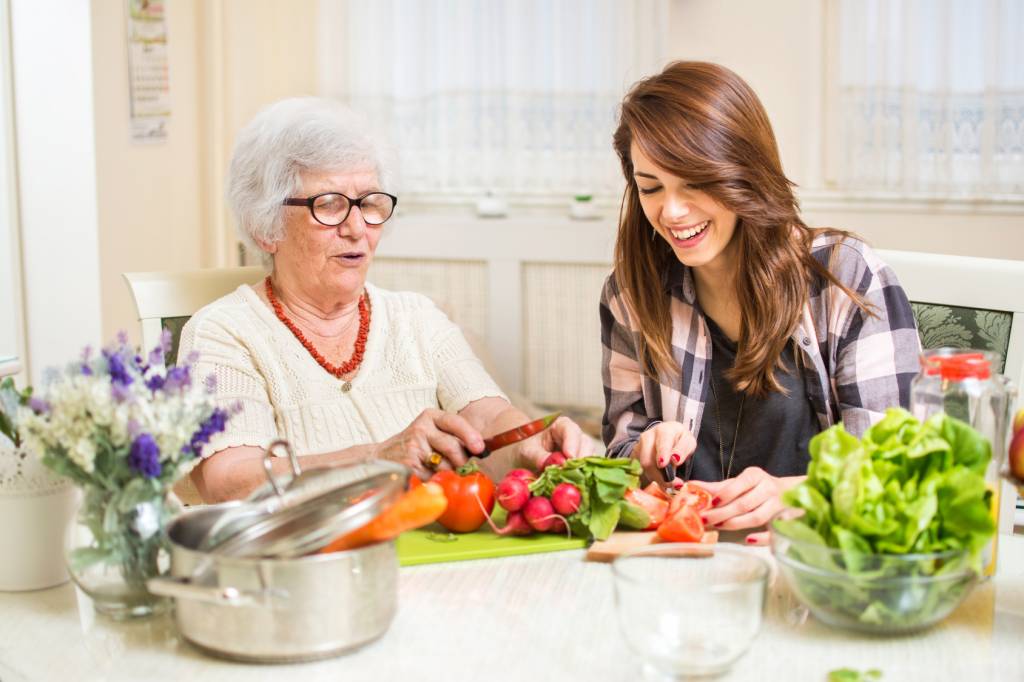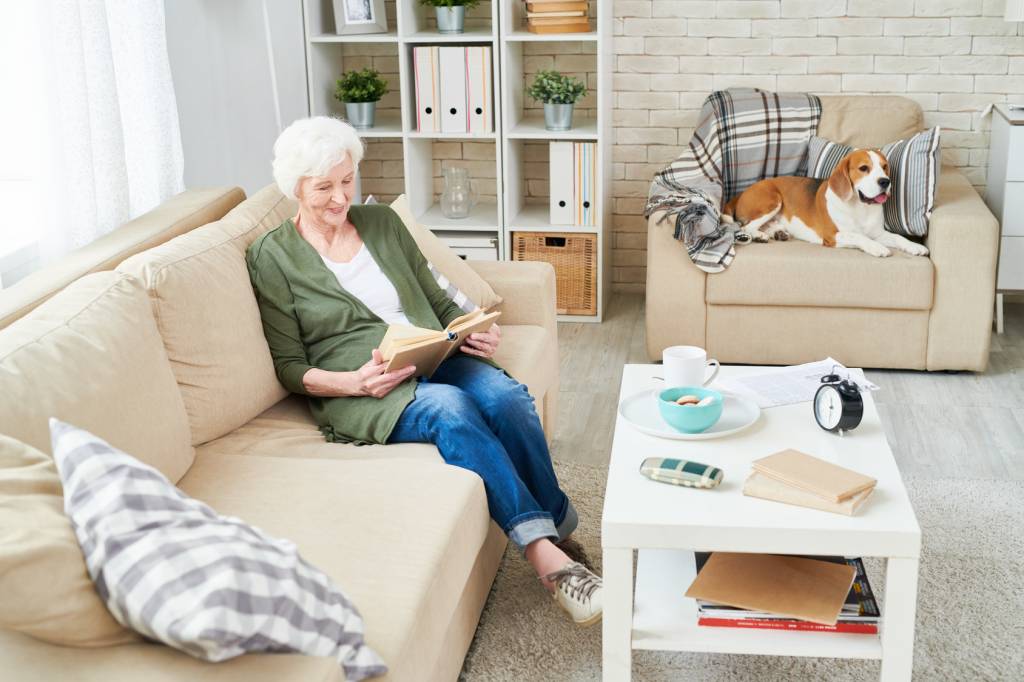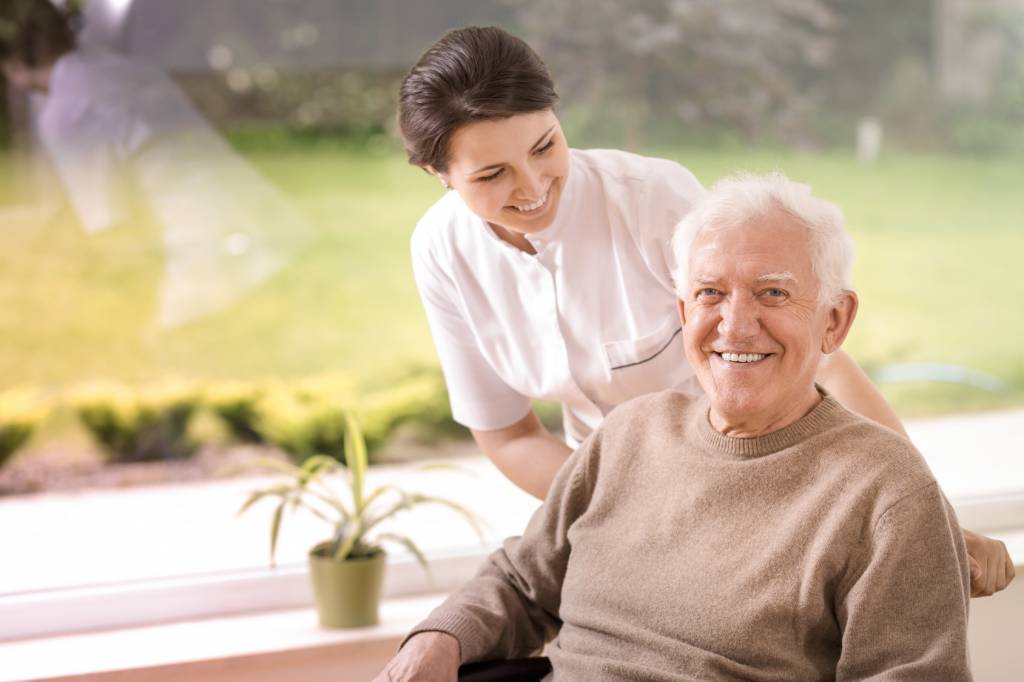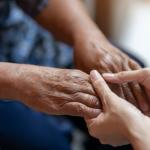Feeling like one is doing too little or experiencing resentment at the loss of personal time can lead to family caregivers being stuck in the exasperating cycle of caregiver guilt. The difficult feelings spurred by caregiver guilt are commonplace. It is important to let go of guilt to promote the wellbeing of all involved.
Where does guilt come from?
As adult children spend daily time caring for their elderly parents or aging relatives, uncomfortable feelings may creep up and sour the existing relationship. Caregivers with unresolved childhood issues, for instance, feel guilty about the nagging feelings associated with past dilemmas.
A primary caregiver who devotes constant attention to an aging loved one inevitably loses precious personal time in the process. The loss of friends, career opportunities and chances to pursue hobbies lead to caregivers feeling resentment—then guilt when they believe these feelings are unwarranted.
Personal health issues are likely to consume a family caregiver’s time, energy and ability to offer continual care to an elderly loved one. When experiencing an illness, the caregiver will feel guilty about failing to deliver more compassion and attention to the care recipient.
How does guilt manifest?
Guilt shows up in the most unusual ways. Primary caregivers may complain profusely. These individuals are likely to be offensive with remarks or even resort to baseless accusations. Acting with extreme overprotectiveness of the care recipient is likely. They may also visit too frequently or infrequently.
While caregiver guilt is common, the ways to let go of guilt are readily accessible to everyone. Once the caregiver realizes the existence of overwhelming feelings of guilt, she has plenty of options to rid her life of this emotion. Here are eight techniques to help resolve caregiver guilt.
1. Recognize the Guilt
The most important way to let go of guilt is to first recognize and accept these feelings. Guilt is destructive, unnecessarily leading the caregiver down a harsh path of anger, uneasiness, resentment and agitation. It is critical to avoid being consumed by the negative emotions.
Understanding the various factors that trigger the feelings of guilt is helpful. Steps may be taken to resolve the issues, which leads to some semblance of peace for both the caregiver and care recipient. Plus, caregivers who know they are not alone in their feelings can better relieve their guilt.
2. Improve Quality Time
A caregiver may assume she fails to devote enough time to a care recipient, leading to feelings of guilt. Rather than mowing the lawn, flip through a family photo album with the aging loved one. Gifting quality time may be more important to an elderly parent than doing practical chores.
3. Establish Limits
An aging loved one may demand that all caregiving tasks be handled by the family caregiver. Since meeting every request is not always possible, it is important the caregiver set limits on what she is able and unable to do. Acknowledging limits helps to reduce the guilt trips.
4. Resolve the Unresolved
Childhood issues that remain unaddressed can slowly wreak havoc on the caregiver/care recipient relationship. Tackle the associated guilt with forgiveness. Working through a problematic past allows the caregiver to provide compassion without holding grudges or being bogged down by guilt.
5. Encourage Independence
Juggling the endless details of caregiving is wearisome. Fostering independence in the aging loved one is beneficial to both parties. Simple adjustments, like purchasing an alarm pill dispenser, promotes a sense of agency in the senior. The elderly person’s independence also lends the caregiver personal time.
6. Offer Care in Your Own Way
Caregiving may be performed in a variety of ways. Some caregivers are more adept at organizing a care team or managing finances. Instead of feeling guilty about being unable to handle all aspects of care, offer meaningful care by doing what is possible.
The definition of caring may be different for each individual. For instance, a family caregiver may prefer to contribute to the caregiving process by paying for home care services. Others may shower care by planting a flower garden so that the aging loved one remains in good spirits.
7. Reach Out to a Support System
A primary caregiver may realize she is unable to handle the numerous aspects of caregiving alone, especially since the task requires a substantial commitment of time. Before reaching a breaking point, the caregiver is advised to reach out to a support system to share the workload.
A spouse, nearby relatives, siblings and the caregiver’s children are helpful when caregiving becomes demanding. Schedule a family meeting to make the support system aware that single-handedly providing care is unfeasible. Consider inviting a professional to facilitate the family meeting.
8. Involve Outside Help
Since caregiving requires an enormous dedication of both time and energy, family caregivers deserve the occasional break. Respite care provides caregivers with time away from caregiving responsibilities. When the elderly individual resists outside help, be firm about needing personal time.
Work with a Home Care Agency
Caregiving is frequently a long-term commitment, often stretching for years. Family caregivers benefit from the relief that respite care from home care agencies, like Assisting Hands Home Care, bring. Respite care helps to ease the feelings of guilt that stem from the various factors mentioned above.
Assisting Hands Home Care service providers are dedicated professionals who are skilled in managing all aspects of non-medical senior care. Our caregivers assist the elderly with personal care tasks, like bathing and grooming, as well as help with practical matters, like transportation and light chores.
Professional caregivers from our memory care team are also trained in dementia and Alzheimer’s care. We offer fall prevention services as well as personal emergency response systems. Seniors in our care receive the most comprehensive non-medical home care in the area.
Contact Us
Renew your outlook and refresh your energy levels with our elder care services. You’ll return to caregiving duties with newfound vigor.
Rather than be consumed by guilt, consult Assisting Hands Home Care at (847) 796-6685 for reliable respite care.








